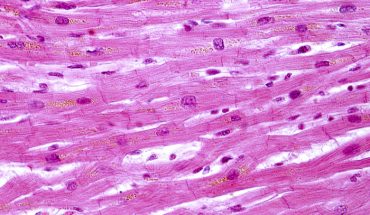A medical education in the UK is a very specific affair. There are some facts that of course are global, fundamentals of anatomy for example, that are the same from Karachi to California. Some things you need to learn to be a doctor anywhere in the world. But here there is one element that is unique, the NHS. I am not being taught how to be a doctor, I am being taught how to be a doctor in the NHS. Yet there is a gaping hole in that very specific training. How does this system actually function?
The recent junior doctors strike has shone a light on the realities of what it is to be a doctor in this country and we are suddenly all aware that our professional lives are subject to the ebbs and flows of politics. Of course, this shouldn’t really be news to us, but somehow it seems to be. The complexities of the body pale in comparison to the complexities of NHS governance. Yet we are never taught so much as the basics of this sprawling, multi-layered beast. Who will pay our wages? Who do we work for? Who decides….everything?
I cannot tell you, for example, what NHS England really is. Or what Monitor does. The one arm of this structure that is ever present is NICE, but only because it is in charge of designing clinically relevant guidelines that we are expected to know. Beyond that the organisation that will determine everything from our wages to our parental leave is entirely opaque. So whose job should it be to teach us this? I can only speak from my own experience and say that all my knowledge about the system has been gathered anecdotally from doctors already working. The medical curriculum has so far made me painfully aware of my responsibilities to the NHS, of the rules I must follow, but not its responsibilities to me.
I have pondered this clear blind-spot in our teaching and wondered where it comes from, and several possibilities have sprung to mind. The first is that the constant changes in how the NHS works makes it impractical to teach. This is a fact, but as far as I can see this fact doesn’t negate the responsibility medical schools should have to prepare us properly for the working world. I cannot say for example, that I won’t learn about the nervous system because it is hard to understand, sorry future patients, I just couldn’t be bothered. Equally, teaching us about the hydra that is the NHS may be hard but that’s not a good enough reason not to.
Another alternative, and one that is a frightening prospect, is that the system is so complex that no-one really understands it. One cannot teach what one doesn’t comprehend. What solution is there for this problem? I do not claim to know.
The final, and perhaps most worrying of all, is that the powers that be would rather future doctors didn’t really understand the system at all. As the recent industrial action proved, an organised, empowered workforce is inconvenient. It is easier to exploit people that don’t know they are being exploited. Creating Kafka-esque levels of bureaucracy and complexity helps keep dissenters quiet, or at least keeps them busy.
Of course, we as individuals have a responsibility to do our own research and I don’t deny this. We should take an active role in every aspect of our training. But personal studies should be backed up by some formal teaching. Furthermore, leaving it up to individuals whether they take an in interest in the system at all, means many won’t bother, so tied up are they with all the other things they need to do. If medical schools, and more broadly the state, want to produce medics who are dedicated to the NHS, they should bring them into the fold, not lock them out, confused and overwhelmed by acronyms, committees and regulators. A sense of powerlessness on the other hand, of being hoodwinked and misdirected, is sure to breed discontent.
- A Blind-Spot - 17th July 2016
- Being A Patient – Should I tell my doctor that I am a medical student? - 1st April 2016
- It’s a Sign – What a Textbook Can’t teach - 20th March 2016







